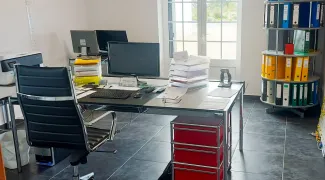On January 8, 2024, Government Law No. 10/2024 was published, which contains measures to simplify various procedures in the field of public construction law and spatial planning law. This law abolished the requirement to submit the use permit (or certificate of the relevant exemption), as well as the requirement to submit the technical description of the building when concluding sales contracts. This exemption is effective from January 1, 2024. When notarizing a building purchase contract, notaries (and other professionals with notarizing powers) are now simply obliged to point out that there is a possibility that the building being sold does not have the building law titles required for the corresponding use (or construction).
The requirement for building permits was introduced in Portugal by Government Law No. 38382/51, of August 7, 1951. This law was directly applicable to urban areas and was declared applicable to all other areas gradually by the various municipalities over the next three decades. With the entry into force of this law, the implementation of construction measures (new buildings, as well as all renovations and changes classified by the law as requiring approval) was now subject to obtaining approval before the corresponding implementation began.
In the 1980s, Portuguese lawmakers began to require proof of the legality of buildings as a prerequisite for selling them. Most recently, this requirement arose from Government Law No. 281/99, of July 26th (amended by Government Law No. 116/2008, of July 4th). According to this law, no purchase contract for a building could be concluded without the required use permit or certificate of the corresponding exemption (i.e., proof that the building was constructed before the requirement for building permits came into force and not later has been subjected to measures requiring a building permit at the time). The aim was to protect the buyer from buying illegal buildings.
In 2004, when concluding a purchase agreement for a building, the submission of the relevant technical description became necessary. Since January 1, 2024, a technical description of the building no longer must be presented when notarizing the purchase contract.
It should be emphasized that the control of the legality of the buildings played a very important role when notarizing sales contracts and represented a strong motivation for owners to properly authorize construction work, as well as to subsequently legalize illegally carried out construction work when a sale was intended.
Due to the new change in the law, there is a great risk that the Portuguese market will now be flooded with properties with illegal buildings and that buyers will not actually be aware of this illegality (and all the resulting risks) when completing the purchase.
Marlene Sennewald Sippel
Advogada (Lawyer)
Link to original Article: https://www.mss-adv.pt/post/immobilienkauf-die-legalit%C3%A4t-von-geb%C3%A4uden-wird-im-rahmen-der-beurkundung-von-kaufvertr%C3%A4gen-mit-wi



